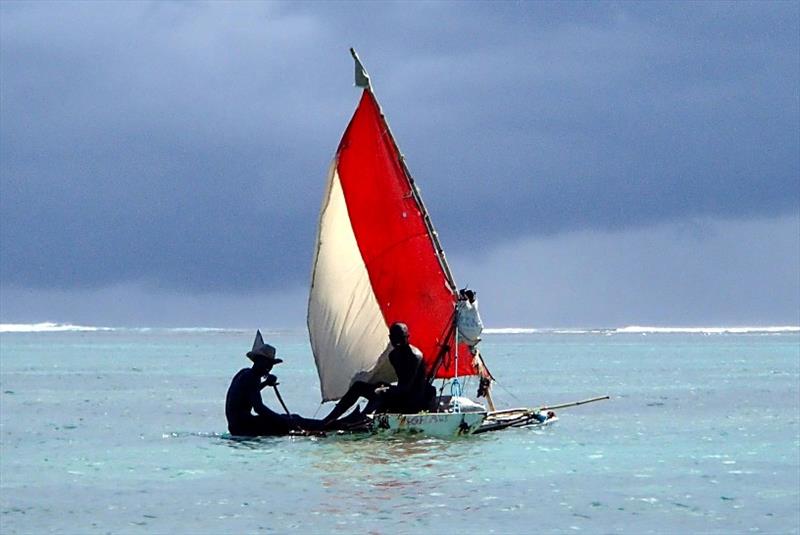
Breaking bread with rivals leads to more fish on coral reefs
by coralcoe.org.au 7 May 2019 09:36 UTC

A group of fishers in Kenya © Tim McClanahan, Wildlife Conservation Society
Cooperation is key to most successful endeavours. And, scientists find, when fishermen and women cooperate with other fishers, this can boost fish stocks on coral reefs.
Dr Michele Barnes, a senior research fellow from the ARC Centre of Excellence for Coral Reef Studies (Coral CoE) at James Cook University (JCU), is the lead author of a study published today that looks at the relationships between competing fishers, the fish species they hunt, and their local reefs.
"Relationships between people have important consequences for the long-term availability of the natural resources we depend on," Dr Barnes says.
"Our results suggest that when fishersspecifically those in competition with one anothercommunicate and cooperate over local environmental problems, they can improve the quality and quantity of fish on coral reefs."
Co-author Prof Nick Graham, from Lancaster University (previously at JCU), adds: "Coral reefs across the world are severely degraded by climate change, the pervasive impacts of poor water quality, and heavy fishing pressure. Our findings provide important insights on how fish communities can be improved, even on the reefs where they are sought."
Dr Barnes and her team interviewed 648 fishers and gathered underwater visual data of reef conditions across five coral reef fishing communities in Kenya.
They found that in the places where fishers communicated with their competitors about the fishing gear they use, hunting locations, and fishing rules, there were more fish in the seaand of higher quality.
Co-author Dr Jack Kittinger, Senior Director at Conservation International's Center for Oceans, says this is likely because such cooperative relationships among those who compete for a shared resourcesuch as fishcreate opportunities to engage in mutually beneficial activities. These relationships also help build trust, which enables people to develop a shared commitment to managing resources sustainably.
"This is why communication is so critical," says Dr Kittinger. "Developing sustained commitments, such as agreements on rules, and setting up conflict resolution mechanisms, are key to the local management of reefs."
"The study demonstrates that the positive effect of communication does not necessarily appear when just anyone in a fishing community communicates this only applies to fishers competing over the same fish species," adds co-author Dr Örjan Bodin, from the Stockholm Resilience Centre at Stockholm University.
The study advances a framework that can be applied to other complex environmental problems where environmental conditions depend on the relationships between people and nature.
Co-author Dr Orou Gaoue, from the University of Tennessee Knoxville, emphasises this broad appeal.
"Although this study is on coral reefs, the results are also relevant for terrestrial ecosystems where, in the absence of cooperation, competition for non-timber forest products can quickly lead to depletion even when locals have detailed ecological knowledge of their environment."
"Environmental problems are messy," explains Dr Barnes. "They often involve multiple, interconnected resources and a lot of different peopleeach with their own unique relationship to nature.
"Understanding who should cooperate with whom in different contexts and to address different types of environmental problems is thus becoming increasingly important," she concludes.